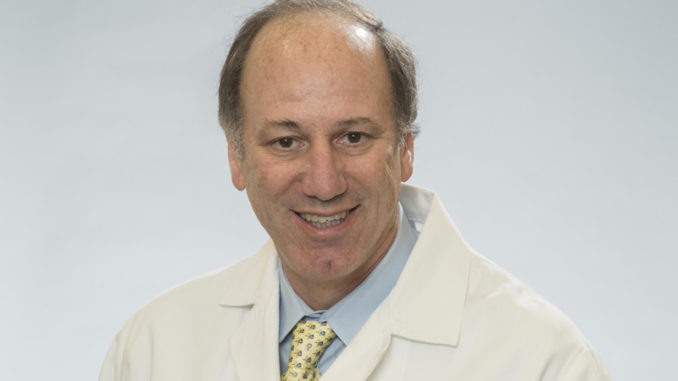
What to Know About Osteoarthritis
By Dr. Howard Hirsch
Orthopedics, St. Charles Parish Hospital
Osteoarthritis is the most common type of arthritis, and is a degenerative joint disease that mainly affects the cartilage between joints. With osteoarthritis, the top layer of cartilage deteriorates or breaks down so there is less of a cushion between the bones. Unfortunately, once cartilage cells are damaged, they lack the capability to regenerate. Thus, once cartilage is worn away, it is essentially lost forever.
How do I know if I have osteoarthritis? What are the symptoms?
As the cartilage breaks down, someone suffering from osteoarthritis might experience swelling, pain, and issues associated with movement of the joint. Over time, the bones may start to chip or break down, or develop growths called bone spurs. While this condition is found most commonly in individuals over the age of 65, younger ages can frequently suffer from osteoarthritis.
What causes osteoarthritis?
Genetics and prior injury are major factors that predispose the development of arthritis. Obesity, which puts additional pressure on joints, accelerates the process. Many years of carrying extra weight can cause cartilage to break down more quickly than usual.
What are the treatments for osteoarthritis?
There certainly are a multitude of treatment options for osteoarthritis. Initial management may include modifications to your activities, the use of ice or heat packs, physical therapy, or over-the-counter medicines including ibuprofen, naproxen, and acetaminophen.
Surgery, in the form of total or partial joint replacement is also an option for more advanced cases of osteoarthritis – your doctor may suggest it as a final treatment option if your pain and stiffness is drastically affecting your mobility. Finally, a new and exciting area of osteoarthritis treatment includes biologic therapies, which involve taking your own body’s cells, which have regenerative capabilities, and injecting them back into the arthritic joint. While still deemed experimental, there is growing research that suggests that these therapies may help halt the progression of osteoarthritis and regenerate lost tissue.
Are there ways to prevent osteoarthritis from occurring?
Unfortunately, if a person’s genes are the cause, as is often the case, arthritis is probably not preventable. Some measures may slow down the procession of symptoms: Generally, weight loss and regular exercise are good options to begin strengthening muscles and reducing unnecessary stress on joints. It is important to understand, however, that proper exercise is more important that exercise alone. Poor mechanics and technique can lead to increased symptoms. Exercises such as cycling, swimming, and elliptical machines are some forms of cardio that are better tolerated on the hip and knee joints in particular. Non-painful resistance training exercises are also great to strengthen the muscles around a joint, which will help to provide stability and may slow the progression of arthritis. Your doctor will know the combination of all these things that’s right for you individually.
Should I be worried?
While there is no yet definitive cure for osteoarthritis, there are an increasing number of treatment options that are helping make this condition more manageable. Talk to your doctor about any joint pain or discomfort that you may be experiencing, and they will find a plan that works for you.
Dr. Howard Hirsch, M.D., is part of the Ochsner Orthopedics Team and specializes in Joint Replacement, Hip Pain and Hip Replacement Surgery and Knee Pain and Knee Replacement Surgery. To schedule an appointment with Dr. Hirsch at St. Charles Parish Hospital (1057 Paul Maillard Rd., Luling, LA), please visit https://www.ochsner.org/doctors/howard-hirsch or call 985-785-2218.




Be the first to comment